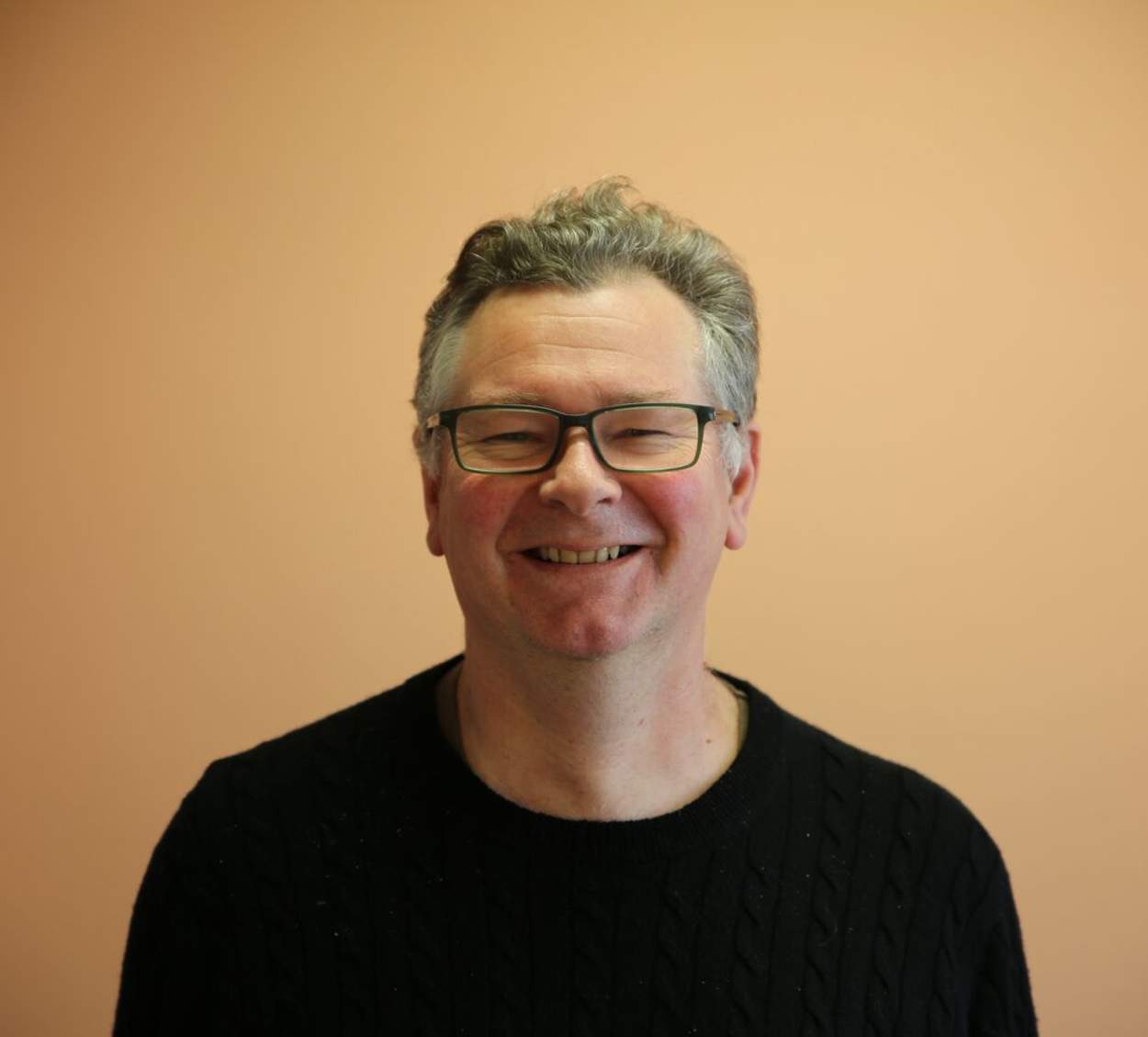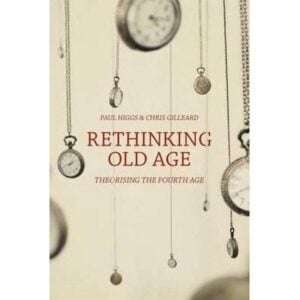Ageing Without Agency: Rethinking Old Age with Professor Paul Higgs, UCL
Tags
Living well
Paul Higgs is a professor of the Sociology of Ageing at UCL and editor of the journal ‘Social Theory and Health’. Currently a co-investigator on two NIHR/ESRC projects investigating the social aspects of dementia, he has co-authored six books on various research topics around ageing with Dr Chris Gilleard. We talked to him about the “fourth age” a concept put forward in one of his most recent books Rethinking Old Age: theorising the fourth age (2015), the idea of “personhood” and the complexity of the role of a carer in dementia.
One of your most recent books has described a “fourth age” in later life – what is this and why is it important?
The concept of the third age was popularised in Britain by Peter Laslett, a Cambridge history professor, who was talking about the fact that people at the end of the 20th century were now living longer than retirement age.
Now that most of us can actually expect to reach retirement age, and relatively healthy, those real markers which said once you’ve reached retirement age and you’re just waiting for decline to set in and death to come, no longer structure how people live their lives.
People in what we call the “third age” are the people who created youth culture in the 50s and 60s are now reaching those ages, and they aren’t ready to put away youth culture. Many now act as if ageing is, in fact, age-less: that you get to 60, 70, 80, and really it’s just principally about living your life. So part of the third age is the idea that later life is a lifestyle, and you can participate in it to the degree that you want to, or not.
The idea of being lumped in with “older people” has always been demarcating in most societies. However, the idea of ageing has changed, and retirement is not synonymous with old age anymore.
The majority of the population can now expect to reach a stage of old age that is not defined primarily by being sick or disabled, so there is a dividing off of the things that they fear about later life, embodied by the nursing home. It’s this symbolic space or a “social imaginary” that we call the “fourth age”. It is the projection of our fears about old age now.
One of the problems that people are well aware of is that the frailty and cognitive impairment in later life are not things that we can necessarily avoid: there’s no treatment, no real understanding of how they’re caused and they seem to be something arbitrary but very age-related.
The idea of successful ageing is to avoid decline and memory loss and most importantly to avoid going into a nursing home. Then what you have is a constant tension in society where we don’t want to think primarily regarding our age and decline, but at the same time we are aware that it does exist somewhere “out there”.
So people talk about running marathons in their 90s at the same time as the media reports the rate of increase of people with dementia or numbers projected of people in nursing homes. As such, what we’ve been trying to do with our research is get people to address that different issues are going on rather than just one issue around old age.
Tell me more about your research into the social aspects of dementia.
I am involved in two projects at the moment: the first about promoting independence in dementia. This is a qualitative piece of research looking at how people negotiate the experience of having a diagnosis, including how they relate to that diagnosis in terms of their communities, and how other people relate to them. But the difficulty is that you may negotiate the diagnosis for a few years quite successfully, but if the condition takes its normal course, it becomes more and more difficult to sustain that.
The second project is about managing agitation in promoting quality of life in nursing homes and the issue of personhood, which has become a key term for care staff and clinicians.
The fourth age, the process of becoming subject to care, becomes a third-person narrative, where other people are talking about you, making decisions for you.
Paul Higgs
In dementia people often lose their sense of who they are and there has been a strong movement to point out that the personhood of someone with dementia should be acknowledged – and that should be in understanding the nature of the condition they have.
This implies, for instance, that care staff have to understand the difference between the person, who has got to be acknowledged, and the disease, which has to be excused. If someone lashes out in normal circumstances we react to it, we don’t excuse it, whereas their jobs imply that carers have to not react to it – they have to continually regard the person underneath the action as the core of their activity.
I’ve been looking at how useful personhood is as a category. If you’ve got this dilemma as to whether behaviour is the disease or the person, we’re not really operating with the same notion of personhood that we would attribute to ourselves. The whole of modern society is based on a rational self who knows who they are, where they’ve been and what they want.
I’ve also just been writing a paper about the one group of people whose personhood is never generally acknowledged in these situations – formal care staff. [When people lash out at them] they don’t get asked, “how does this make you feel when this happens?”
There’s interesting interview evidence that managers often actually see being subject to violence as part of the job of being a carer. It’s quite unique I’d say, even those jobs like the police where you might get hurt, wouldn’t actually say it’s part of the job and you should just accept it. So this issue about personhood and how you think about it becomes quite critical to quite a large area of social care at the moment.
What is the difference between personhood and identity?
The idea of “personhood” is essentially a placeholder – we use it because what we are quite rightly worried about is if we don’t actually acknowledge full equality of people with dementia with other members of the human species we can do anything we like to them. The cause of abuse in some care homes could be at least described in terms of how they’re treated as “less than human”.
But even though care manager training puts a priority on personhood, person-centred care can end up with a checkbox mentality. You can’t actually prove that you are treating somebody as a person unless you have something you can measure and that then once you measure it is as if you’re going through the motions. I have massive admiration for formal carers who have to negotiate what are very complex emotional and personal situations.
Identity, on the other hand, is something that is stripped away by dementia, because identity is the thing that in a society is based upon choice, which is one of the crucial motifs of our time. Not having choice because you don’t actually know what the choice means is very frightening.
This is in some senses the point we’re making about the fourth age. We summed it up in a snappy phrase called ‘ageing without agency’ – in this space, you become subject to the discourses of frailty and dementia. People worry that loved ones are losing their memory and start saying we should take them in or don’t give them keys because they’ll lose them.

We prioritise the narratives of individuals very clearly in modern society: what does this person think, how do they feel about this and how do they make choices. The fourth age, the process of becoming subject to care, becomes a third-person narrative, where other people are talking about you, making decisions for you.
There’s a strong push in the Department of Health that research on groups of patients should be as much as possible conducted by those patients themselves and so we have a concept called peer research or peer researchers.
We had wanted to get people who had just been diagnosed with dementia to actually do some research. And even though they showed interest in participating and could participate, we got a complaint from the ethics committee saying that somebody needs to sign the consent to participate on their behalf, because they are vulnerable adults and can’t make decisions themselves.
It was interesting that at that moment the diagnosis suddenly invalidated their capacity to even make simple choices that even the Department of Health would like them to have a role in making.
Would you say capacity then becomes key to identity?
I think the simple answer is yes, this is why the difference between the third and the fourth age is whether or not you’re able to autonomously make choice, and when that is compromised, you are put into a different category. And even though people maybe try to protect your interests, everybody knows that you are in a different situation, and then behaves as if that is perfectly normal practice. That isn’t to say that these decisions are wrong, it’s just that it becomes a defining characteristic.
This interview was part of a series brought to you by Elder. Whether your are looking for London live-in care or require assistance in another part of the country, Elder will ensure that all of your care needs are taken care of.
Related Features
Clothing and Identity in Later Life: An Interview with Professor Julia Twigg
We talked to Julia Twigg, Professor of Social Policy, Sociology and Social Research at the University of Kent about the impact of clothes on creating and maintaining identity and the idea of “old age” as a cultural construct as well as a physical reality.
Before I Forget: Preserving Our Stories Using Digital Memory Curation – Dr Nick Barratt
Nick Barratt is an author, broadcaster and historian best known for his work on BBC’s Who Do You Think You Are. We talked to him about the power and potential of using digital memory curation to preserve our stories.
Martin Hyde, Professor of Gerontology, Provides Insight into How the Idea of Retirement is Changing
Dr Martin Hyde is Associate Professor of Gerontology at the Centre for Innovative Ageing at Swansea University and Deputy Editor of the Ageing and Society Journal. His research on ageing and retirement seeks to explore the work life course, the ways in which people leave work, and the impact that has on their health and wellbeing after they’ve left. We talked to him about how the idea of retirement is changing, the impact of an ageing workforce and whether it is even healthy to retire at all.
The Implications of Living Well with Dementia: Exploring Resilience with Dr Julie Christie
We talked to Dr Julie Christie about how people can be resilient and how those with dementia can adapt in the face of threat, particularly to their sense of identity – and why this can unlock new understandings of those living with the condition.
Pam Schweitzer, MBE, Reminiscence Expert & Coordinator of the European Reminiscence Network
One of the leading experts in the field of reminiscence for over 30 years, Pam Schweitzer MBE is passionate about the positive effects of this work on older people and those with dementia – focusing on triggering individual memories and the sharing of stories in reminiscence groups. We talk to her about breaking down the boundaries between history and memory, the increasing recognition of the importance of reminiscence work and the power of stories as the fabric of our lives – both personally and in the social record.